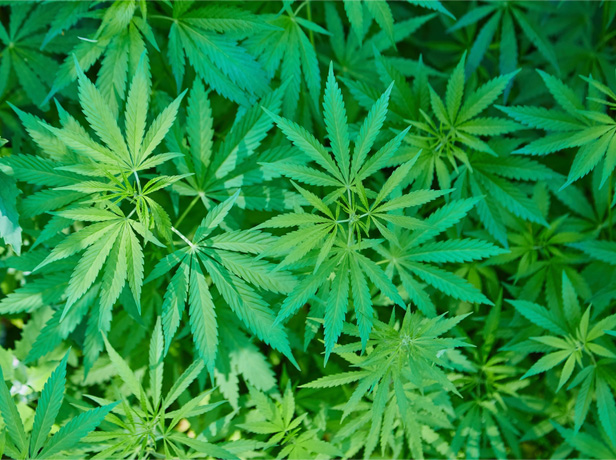October 30, 2025
Meet Jacaranda, the Apparel Brand Making Sustainable Promo Items With Hemp
The brand wants to empower businesses to make a positive environmental impact.
Key Takeaways
• Jacaranda Hemp is expanding into the promotional products space, offering custom-branded hemp merchandise like tote bags, aprons and T-shirts to help businesses meet sustainability goals while enhancing brand identity.
• Hemp is positioned as an eco-friendly alternative to cotton and synthetic fabrics, requiring less water, enriching soil and absorbing CO₂.
• Jacaranda Hemp was founded by three best friends and former Eagle Scouts who share a passion for nature.
When Billy Simon was in college, he took an Uber that would change the trajectory of his career.
“I was wearing a shirt that said ‘Give Thanks to the Earth,’” he said in an interview with Shoutout LA. “The driver proceeded to roast me, saying ‘I bet that’s on cotton; do you know how bad cotton is for the environment!?’ After asking what the better alternative would be, he said hemp!”
Once Simon started to see these blatant displays of greenwashing, he couldn’t ignore them. He noticed that while many brands called themselves sustainable, very few were actually doing the work behind the scenes. And so planted the seed for what would grow to become Jacaranda Hemp, a hemp-based apparel brand on a mission to create clothing that gives back to the earth. Simon founded the company with two of his best friends and fellow Eagle Scouts, with whom he shared his love of nature.
The brand is now expanding into the promo space with a new line of business aimed at helping end-buyers meet sustainability standards with hemp-based material goods.
“Our goal is to empower businesses to make a positive impact on the environment while enhancing their brand identity,” Simon said. “By offering custom-branded sustainable merchandise, we are providing companies with the tools they need to stand out in a crowded market while staying true to their values.”
The news is part of a larger trend toward sustainable promo, which has taken off in recent years due to widespread climate concerns and a need for greater transparency around sustainability. As consumers demand sustainable practices and ethically sourced materials from brands, companies are being forced to take note. That’s especially true for apparel brands: According to Uniform Market research, the fashion industry is responsible for 10% of the world’s annual carbon footprint, surpassing the combined emissions of international flights and maritime shipping. The industry also consumes enough water to meet the needs of 5 million people.
Businesses with an eye toward sustainability have increasingly jumped on the hemp train since the 2018 Farm Bill legalized the crop for commercial use in the U.S. Hemp has made a name for itself as a reliable alternative to synthetic fabrics due to a broad range of environmental benefits, and demand for the material has risen across the promo industry and beyond.
“We’re getting more requests for hemp products than ever before,” Kriya Stevens, director for econscious Apparel (asi/51656), told ASI Media in 2020. “Retail companies like Patagonia and prAna have used hemp in their lines for a while, but now we’re seeing hemp content become more readily available in the imprintables market because there’s a real thirst for them.”
Others, like North Carolina-based Hempsmith, have placed some big bets on the material – and it’s easy to see why. Unlike cotton, which requires heavy irrigation, hemp enriches the soil that helps it grow. It also uses a minimal amount of water and survives without synthetic pesticides or herbicides.
TS Designs, meanwhile, has been experimenting with the plant in a different way. The Burlington, NC-based B Corp uses locally grown hemp leaves for apparel dye.
Jacaranda told ASI Media it sources its hemp from a supplier in Los Angeles’ Fashion District that has been working with hemp textiles since the 1990s, before it was “cool.” While the company imports a portion of fabric internationally, Simon says the supplier has been steadily transitioning to sourcing exclusively from California farms.
“Locally grown and processed hemp is quickly becoming the norm, and they’re on track to no longer need to import at all,” he says. “We feel lucky to have so many domestic options now, as it allows us to keep our entire production process here in California, from fabric to finished garment.”
“As hemp becomes more established in the U.S., we’re excited for the day when 100% hemp fabrics are the affordable standard.”Billy Simon, Jacaranda Hemp
Hemp helps dissolve some of the earth’s most highly concentrated chemical compounds. These plants absorb more carbon dioxide per acre than trees and have multiple uses, making hemp a zero-waste alternative. The material itself is durable and long-lasting, getting better – not worse – with time. That means consumers hold onto their apparel and replace it less frequently, which minimizes the waste they produce.
Jacaranda’s product catalog features tote bags, aprons, hats, crop tops and T-shirts. These range from 100% hemp to blends of hemp and organic cotton (where hemp is the predominant material).
“While 100% hemp is ideal, it’s currently more expensive to produce, so blends make sustainable options accessible to more partners and customers,” Simon says. “As hemp becomes more established in the U.S., we’re excited for the day when 100% hemp fabrics are the affordable standard.”
The expansion into promo formalizes the business’ existing wholesale partnerships, which range from restaurants outfitting staff in durable hemp aprons to vineyards and wine clubs creating elegant hemp wine tote bags, according to Jacaranda’s website. The apparel brand has partnered with local businesses and organizations including environmental advocacy organization TreePeople, LULU restaurant and Le Great Outdoor.

Promo for the Planet is your destination for the latest news, biggest trends and best ideas to help build a more sustainable and socially-responsible industry.

